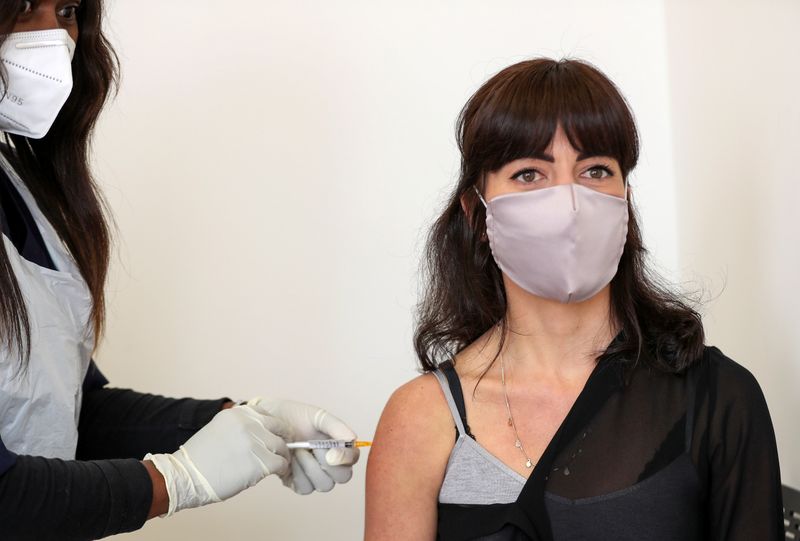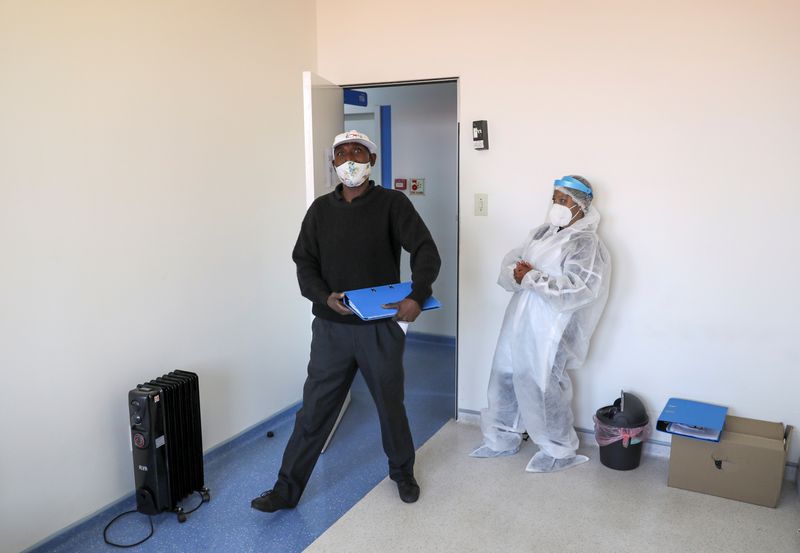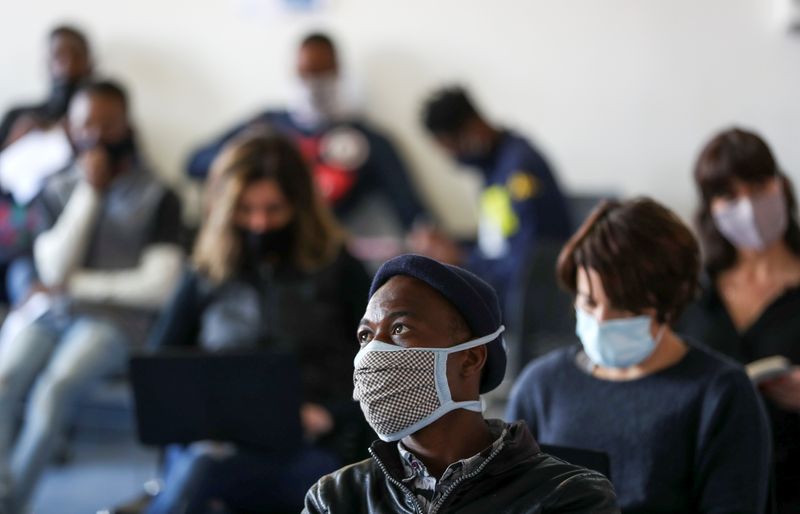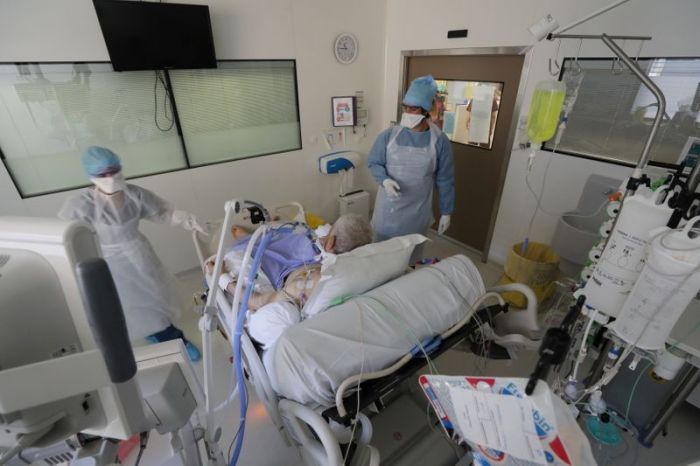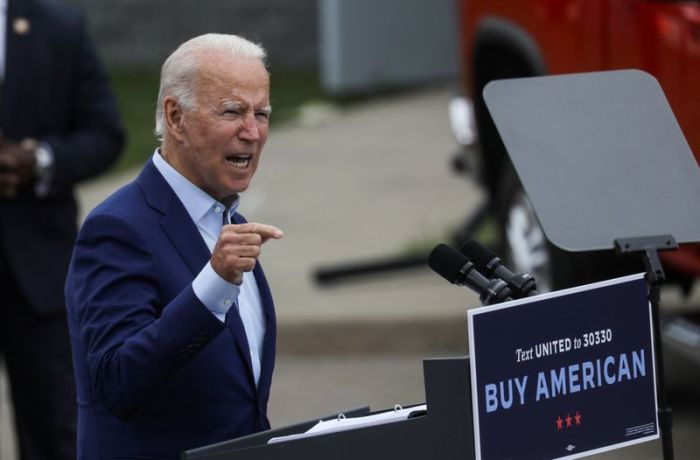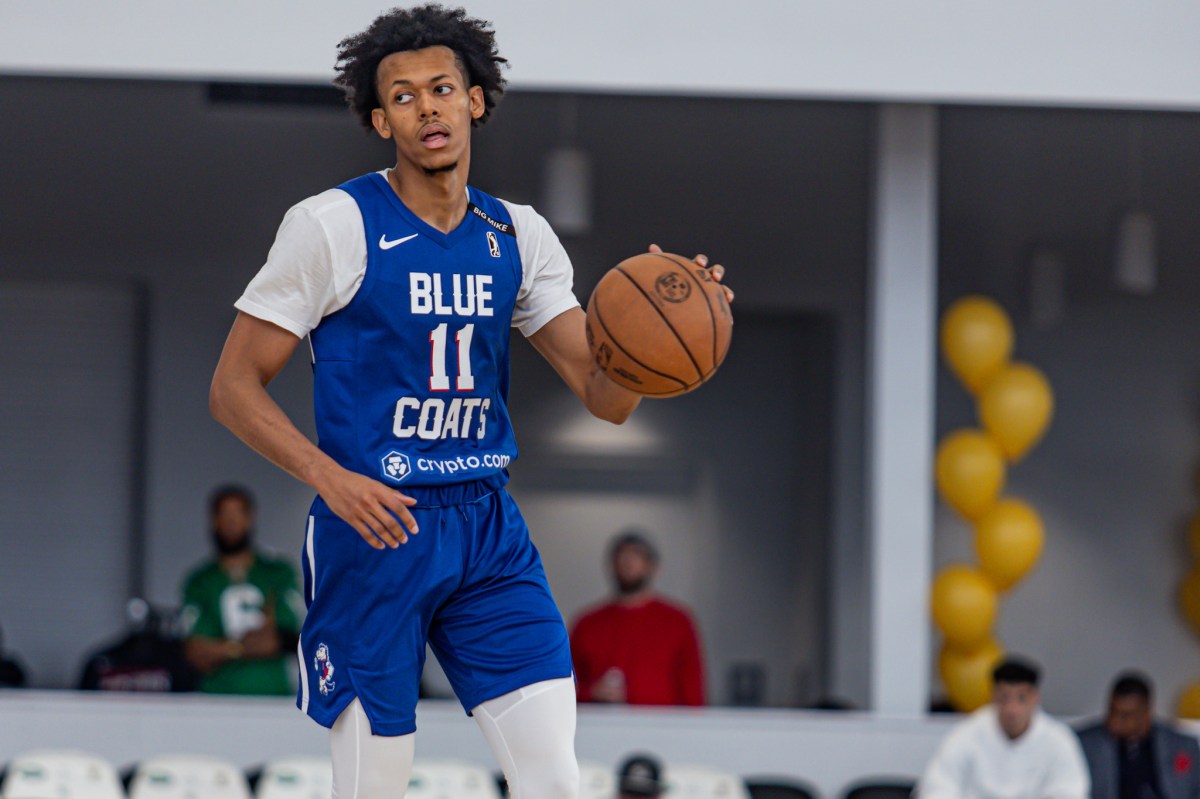JOHANNESBURG (Reuters) – South African volunteers on AstraZeneca’s experimental coronavirus vaccine trial said they were not worried to hear the trial had been paused after a participant fell ill and they hoped to be part of a potential solution to the pandemic.
The vaccine, developed with the University of Oxford, has been described by the World Health Organization as probably the world’s leading candidate and the most advanced in terms of development.
Some 2,000 volunteers in South Africa are taking part in the trial which was paused globally on Tuesday after an unexplained illness in a participant. An independent committee will review safety data.
Khensani Nkuna, 27, started the trial in July. She said she had not yet been personally told about the suspension, but added the unexplained illness was not worrying her since she had no symptoms.
“I don’t know what caused the illness,” she said.
Other participants shared her sentiments.
“It doesn’t make me feel afraid, particularly since my own experience hasn’t yet seen me suffer any negative side effects,” said 32-year old Robyn Porteous.
“I totally understand and respect the need for extreme caution and the following of strict process… so I appreciate the Oxford trial’s honesty about the matter,” she added.
Another participant, 58-year old Aslam Dasoo, who is a medical doctor and convener of a healthcare advocacy group, said he was not concerned as the pause was routine.
“The race for a vaccine is unparalleled in history and does amplify issues that do come up, like this, beyond what it would normally do in any conventional trial,” said Dasoo, who has lost people close to him due to COVID-19.
NO GUINEA PIGS
Nkuna, a mother of a toddler who lives in Diepkloof in Johannesburg’s Soweto township, said she was aware of the risks of the trial but hoped her participation could help lead to a potentially lifesaving vaccine.
Her family and friends objected to her taking part however, fearing she could get the virus, which has infected more than 27.6 million people and killed over 890,000 globally.
“I said I am willing to give it a try,” Nkuna said, admitting that the fear that she could get COVID-19 and possibly lose her life still grips her sometimes.
“I wanted to be part of the solution, I want to save the world because (COVID-19) is destroying people,” she said. “So many people have died, this COVID is destroying the lives of people.”
Testing of new medical interventions in Africa is often controversial. After the continent’s first COVID-19 trial was announced, anti-vaccine activists protested against Africans being used as test subjects.
South Africa was also in talks to conduct other experimental vaccine trials with Johnson & Johnson and Novavax Inc.
“We had to eliminate the perception that this was a guinea pig experiment on poor African people, which it isn’t,” said Dasoo.
Analysts say running clinical trials could help the country secure access to a vaccine on a continent where many don’t have access to medical interventions.
“People have their views and opinions, but the vaccine is a good thing,” Nkuna said. “We can save the world.”
(Editing by Olivia Kumwenda-Mtambo and Alexandra Hudson)

